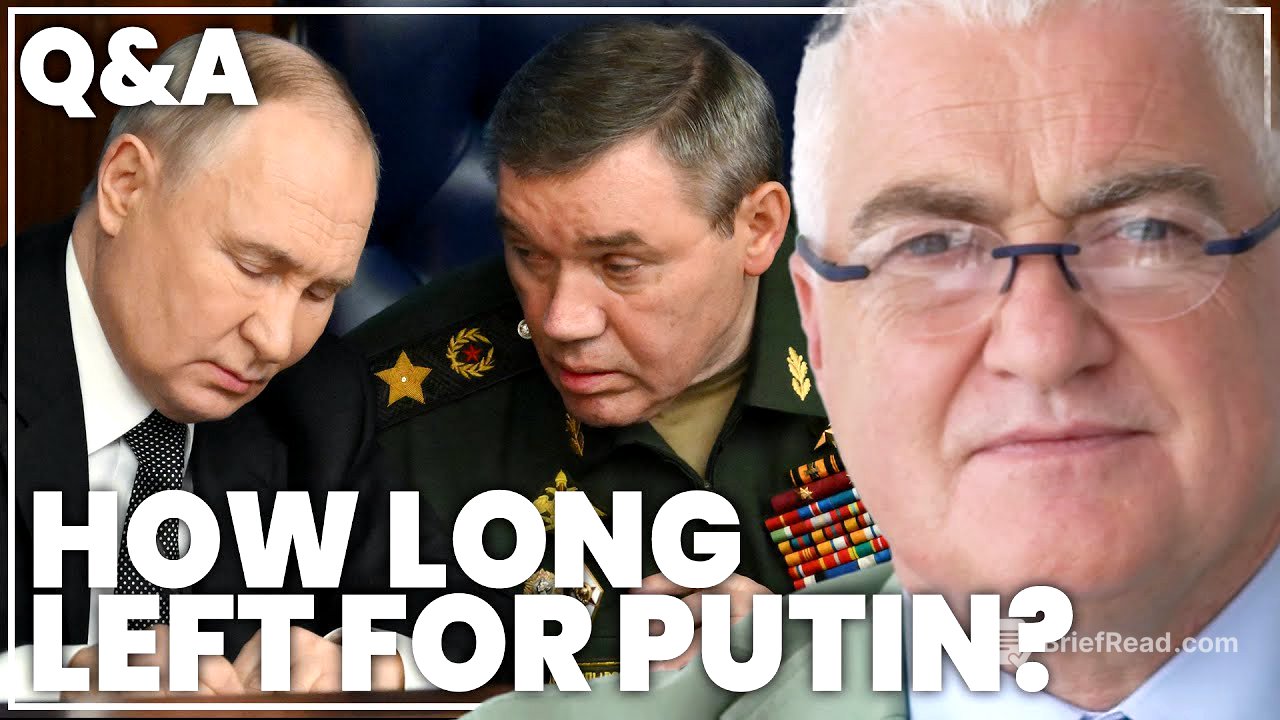TLDR;
Philip Ingram from Times Radio addresses questions from channel members regarding the war in Ukraine and its global implications. He discusses the potential impact of Donald Trump's policies on international agreements like the Australia-UK-US submarine deal, the effectiveness of current sanctions on Russian oil, the internal dissent within Ukraine, and the importance of countering Russian disinformation. He also touches on the lighter side, responding to a comment about his on-screen appearance.
- Potential impact of Trump's policies on international agreements
- Effectiveness of sanctions on Russian oil
- Internal dissent within Ukraine
- Countering Russian disinformation
- Importance of Times Radio membership
AUKUS Nuclear Submarine Deal [0:28]
The discussion begins with a question about the potential damage to NATO capabilities if Donald Trump were to dismantle the Australia-UK-US nuclear submarine deal (AUKUS). Although Australia isn't a NATO member, the deal is crucial for the Five Eyes community and the future of the UK's nuclear-powered attack submarines. While the US hasn't confirmed plans to destroy the deal, it's a possibility under Trump's "US first" policy. The agreement's longevity extends beyond any single presidency, with the UK already investing billions in building more nuclear submarines. However, this situation signals a potential withdrawal of America from international agreements, casting doubt on the reliability of future US commitments.
Sanctions on Russian Oil [2:30]
The next question addresses the $45 per barrel price cap on Russian oil, with the commenter suggesting it's still too high given Russia's $40 production cost. The speaker agrees that Russia's ability to fund its conflict in Ukraine needs to be curtailed more effectively. While a $5 profit per barrel will impact the Russian economy, Ukrainian attacks on Russian oil storage and refining infrastructure are also crucial. Damaging storage facilities reduces the amount of oil Russia can pump, and destroying refining capabilities limits the production of final products for sale. Further actions, such as improving sanctions against the Russian gray fleet, are needed to restrict Russia's ability to move crude oil globally.
Operation Spiderweb and Russian Public Opinion [3:56]
The discussion shifts to "Operation Spiderweb" and its impact on Russian awareness of attacks on tactical bombers. While some Russians are aware through Telegram channels, the information is often countered by mainstream press and statements from Vladimir Putin, who frames the attacks as a direct assault by the West, blaming UK involvement. Despite the availability of truth, Putin maintains significant support within Russia due to domestic information operations, which need to be countered more effectively.
Trump's Leadership and International Stability [5:12]
A commenter expresses disagreement with the idea that Trump is focused, describing him as easily manipulated and Putin-oriented. The speaker agrees that Trump's focus is often self-serving and unstable, which is problematic for international geopolitics that values stability. Competent leaders are needed to avoid reacting impulsively to Trump's actions and to maintain a longer-term perspective. The speaker illustrates this point with an anecdote about intelligence analysis, contrasting the US tendency to react immediately to "intelligence tippers" with a more cautious approach of verifying information before taking action. Trump's unpredictability is a major concern, and his admiration for Putin is seen as detrimental to global stability.
Klitschko's Commentary and Ukrainian Democracy [7:54]
The conversation addresses a question about giving airtime to Klitschko, the mayor of Kyiv, considering the ongoing war. The speaker defends the decision, emphasizing that Klitschko's ability to voice his opinions, even in opposition to Zelensky, demonstrates Ukraine's commitment to democracy. Unlike Russia, where dissent is suppressed, Ukraine allows political opposition to express their views freely. This contrast highlights the fundamental differences between Ukraine and Russia.
Appearance and Times Radio Membership [9:43]
Finally, the speaker responds to a lighthearted comment about his on-screen appearance, explaining that he had makeup done for the segment. He jokes about the limited resources of Times Radio compared to other networks and encourages viewers to subscribe to support the channel and potentially fund more frequent makeup sessions. He also promotes the Times Radio Frontline podcast channel.








